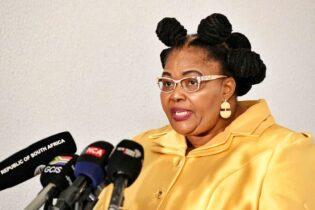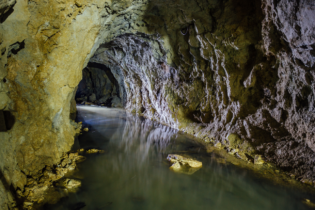Nigeria will continue to have problems with its energy sector because of its inability to develop a long-term vision that links energy access with industrial transformation, says Dr Kandeh Yumkella, the director general of the United Nations Industrial Development Organisation (Unido).Yamkella visited Nigeria with the launch of Unido’s Sustainable Energy for All initiative which has three goals: achieving universal access to energy by 2030, doubling the rate of improvement of energy efficiency by 2030 and to double the share of renewable energy in the global mix by the same time. The initiative was launched in Nigeria because the country aims to meet these goals before 2030.Africa has an ad-hoc policy when it comes to energy, says Yamkella. When the power goes off a generator is started and there is no thought given to where the country should be in 20 or 30 years.“Instead of putting on generators, you would have built a hydro power plant, and Nigeria has a lot of water.”
Some 12 years ago, hydro projects were launched in that country after an extensive survey of the water basins. While most were completed to 90%, they were never turned on. The dams, Yamkella says, could have been used for irrigation and urban water supply but the governors in the states do not link energy access to the transformation of their areas.Nigeria needs to invest in downstream petrochemicals to produce fertiliser and stop gas flaring. A workshop was held as far back as 2001 on achieving zero gas flares and yet, they continue unabated. “Gas can be converted to energy and piped into homes so that women and children do not die from using charcoal.”Yamkella says that most of the textile industries in Nigeria have closed down due to lack of access to sufficient energy and if cities do not have access to this resource, how will the country manage a population of 300 million in 25 years? Furthermore, the efforts of the government to enhance food security by investing in and developing agriculture will be moot if there is no energy to facilitate irrigation. Private sector involvement will be critical due to the costs involved. However, Yamkella is adamant that policies and plans are long-term, guaranteed and governed well. He says that business people need the assurance that such a public policy would be there for 20 years or more, then they will combine their efforts with funding through local banks and foreign investors to ensure energy reliability. This was the case in 2001 when digital mobile legislation was liberalised. All the funding came from within the country.Yamkella is of the opinion that Nigerians can afford to disagree on politics but not on an energy policy. The government, he says, has little or no consistency and dedication to a government policy in this regard. The government needs to understand that a 20-year plan is the only solution to generating enough energy for the country’s development to be sustainable and for Nigeria to become a middle-income country. Accountability, he says, is also lacking.“We need to report to Nigerians annually on how many megawatts are generated, how many transmission lines are put in place and how many people have been connected to the grid. Governors should also pick up on this agenda and hand it over to successors if not completed by the end of their tenure.”The country produces more than 4 000MW but needs 20 000 if it is to achieve its development goals, according to Yamkella. Currently, it has a 5 900MW capacity but this cannot be fulfilled because of lack of maintenance and infrastructure in decline.Yamkella is of the opinion that Nigeria can be fully self-sufficient and a net exporter of electricity simply due to its water resources. It is also a producer of ethanol, and sugar, and can thus, be a top supplier of biofuels. The south-east of the country should be declared an energy hub and can produce enough energy due to the gas resources.“Brazil has had a 40-year policy on the production of ethanol. Today, they are the only country, that when you get to the filling station, you can use 90% diesel combined with ethanol.”
Source: The Guardian Nigeria





